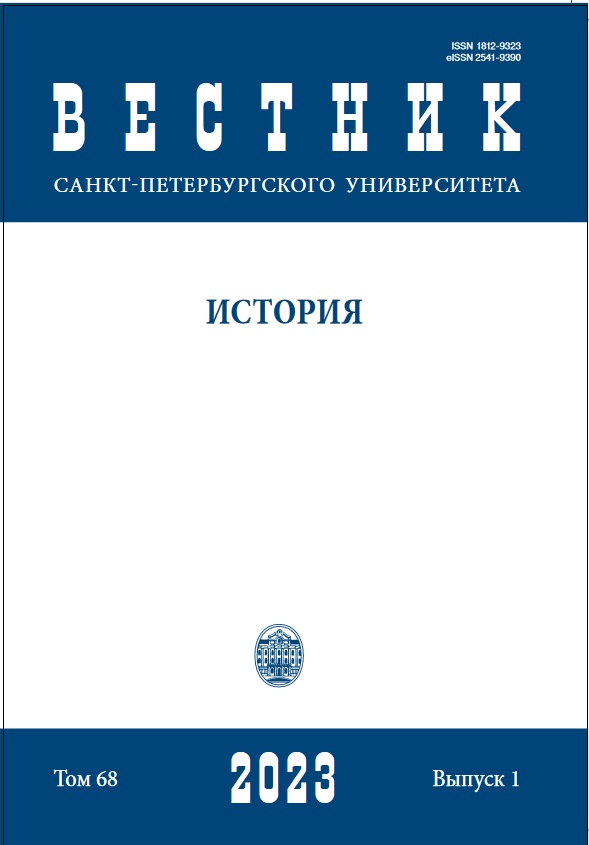The Varangian Issue through the Prism of the Social Contract Concept
DOI:
https://doi.org/10.21638/spbu02.2023.109Abstract
The article is devoted to an under-researched topic of the impactth at the theory of the social contract of European thinkers of the 17th–18th had on the discussion in the 18th-century Russia on the “Varangian-Russian issue”, the conditions and basis for the East Slavs’ state-building in the initial period. It gives a proper analysis of socio-political and economic factors for accepting the doctrine of G. Grotious, T. Gobbs, J. Locke, B. Spinoza, and Ch. Montesquieu by Russian nobility. The doctrine described the treaty-based relations between the State of Russia and its sovereigns. The article studies the influence of the Social Contract theory on the Tsarism’s domestic policy in the second half of the 18th century. This policy was upheld in the form of the Enlightened absolutism which served to balance the interests of the upper classes of the Russian Empire. By examining the views on the “Varangian issue” of members of the Russian Academy of Science, such as G. Bayer, G. Miller, and M. Lomonosov, the article explores the effect of the treaty-based concept of the state on the views on the genesis of the Russian statehood and the rejection of the theological doctrine of the sovereignty in the country. Historians G. Bayer and G. Miller accepted the conclusions of the European thought on the origin of state-building in some European nations as a result of an external conquest or an agreement for managing. Using the chronicle about the invitation of a Varangian Rurik, they revealed a similar process in Russia. A different viewpoint was expressed by M. Lomonosov. He considered the Slavs’ statehood and the conclusion of the management agreement to be the result of their internal development.
Keywords:
the Norman theory, normanism, anti-normanism, the Varangian-Russian issue, age of Enlightenment, the social contract theory
Downloads
References
Downloads
Published
How to Cite
Issue
Section
License
Articles of "Vestnik of Saint Petersburg University. History" are open access distributed under the terms of the License Agreement with Saint Petersburg State University, which permits to the authors unrestricted distribution and self-archiving free of charge.





